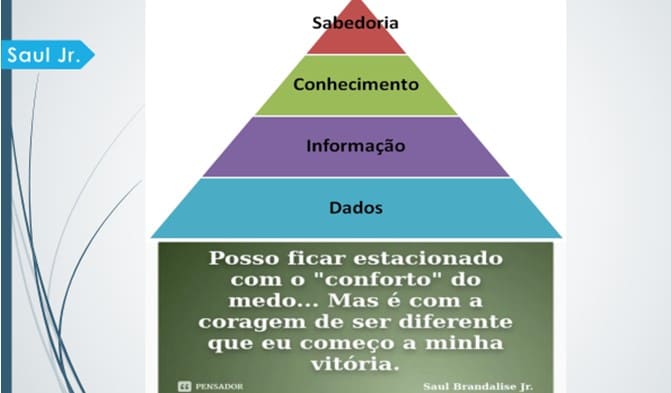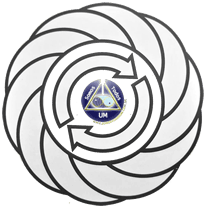Why do we allow other people to treat us badly?

Autor Bel Cesar
Assunto STUM WORLDAtualizado em 08/04/2020 11:34:53
English version by Kevin Mathewson - [email protected]
Once I said to Lama Gangchen Rinpoche: "This time I want to look directly at negativity. I'm not going to deny it". And he said to me, "Looking is fine, just don't touch it. It's like when you watch the news on TV. You see the negativity, but you don't let it into your house. You can face negativity directly, but don't let it into your mind".
Most of the messages of our society contain destructive and negative ideas. All we have to do is turn on any TV news program to be reminded how dangerous the world is. In an effort to protect ourselves from daily threats, we begin to feel beleaguered or even equally perverse in the hostile environment that surrounds us. To keep our mind clean is a challenge requiring constant reflection to prevent negative information or other people's negative points of view from influencing our mind.
Lama Gangchen Rinpoche warns us: "We should not follow negative teachers or buy negative information in the supermarket of thought". Or, as Marie France Hirigoyen, author of a book on "moral harassment"* puts it, we need to recognize the characteristics of perverse behavior so as not to be swept away by it.
And yet it is not so simple or easy to recognize perverse behavior. As Marie France explains: "Small perverse actions are so commonplace that they seem normal. It starts with a simple lack of respect, a lie or a manipulative act. We don't find it intolerable, unless it affects us directly. If the social group in which such behavior occurs does not take a stand, this sort of behavior becomes increasingly brazen, with serious consequences for the psychological health of the victims. Since they're not sure they will be understood, they keep quiet and suffer in silence". Once we learn to look upon mistreatment as something apparently normal, and therefore, theoretically acceptable, we don't even think it could possibly be healthy to free ourselves from such mistreatment!
Indeed, why is it that we allow people to treat us badly? Because we doubt our own sanity. In this sense, knowing oneself, that is, recognizing our potential, our resources and limitations is the basis for our inner security.
We all understand already that we live in a hostile world, but we have to know how not to fall into the traps of other people's hostility. We need to give ourselves constant encouragement not to get sucked into negativity, especially if we're surrounded by it. As Lama Gangchen Rinpoche writes in his NgelSo Autocura Tântrica III** (Ed Gaia): "the only message we get from others is, don't bother me". That's why we need to have a strong inner refuge that is impervious to outside influence".
To provide a better answer to the question, "why do we allow other people to treat us badly"? let us become acquainted with the stratagems of the person mistreats us. One attribute common to all of this sort of perverse behavior is to prevent the other person from thinking, so that he or she cannot become aware of the aggressor's process of domination. The idea is to create fragility so the person under assault will be unable to defend herself.
Marie France Hirigoyen explains: "Among couples, a shift towards perversity may take hold when affection falters, or when there is excessively close proximity to the beloved. Excessive proximity can be frightening, and it is precisely because of this that what becomes the target of the greatest violence is whatever is most intimate. A narcissistic individual imposes his dominion to control the other person, because he fears that if the other person gets too close, he or she might invade. Therefore, it's a matter of keeping the other person in a relationship of dependency, or even treating them as property, to prove one's own omnipotence. The partner, immersed in uncertainty and guilt, becomes unable to react".
Because of this, here's the first piece of advice to prevent someone from treating you badly - Do not accept unilateral criticism: no one is entirely responsible for any situation or problem. Therefore do not take all the 'blame' upon yourself believing that in this way you can dispel the present tension.
At such moments, it helps us to remember that the reason for perverse behavior is precisely that one does not wish to assume responsibility for one's actions. So that when we accept someone else's share of the blame, we are nourishing his hostile behavior.
Another stratagem of perverse behavior involves refusing direct communication. Marie France Hirigoyen points out, "The partner ends up having to ask all the questions and provide all the answers and, being thus exposed, naturally makes mistakes that are seized upon by the aggressor to emphasize the victim's lack of worth". Therefore, if you find that you end up doing all the talking in a two-person relationship, it's time to stop and ask whether it might be a good idea to adjust such behavior - because it is self-destructive.
At this stage we've figured out that the person who mistreats us is not receptive to conversation, because that would mean an end to the conflict, which would take away the occasion for his aggression to overflow. It is important, therefore, for us to consider the costs and benefits of such a relationship. So that instead of our complaining "Set me free"! we could say to ourselves, "I am setting you free"! To achieve this, we must become aware of our limitations as well as our strengths, so that, step by step, we can free ourselves of the belief that we are caught in a position with no way out. Even though others may treat us badly, we can still treat ourselves well!
To the extent that we can cultivate an unshakeable inner certainty that we no longer wish to be involved in destructive relationships, we develop love and kindness - a positive inner energy prevents our enemies or malicious beings from causing us harm, since they would have to support themselves on some negativity of ours to do so.
As Lama Gangchen Rinpoche advises, "The most important thing in the world is never to abandon our receptive heart, even in the face of death, because this is our true and eternal friend."
*Le Harcèlement moral: la violence perverse au quotidian (Éditions La Découverte, 1998) ; translated into English as Stalking the Soul: Emotional Abuse and the Erosion of Identity (Helen Marx Books, 2000) - [Note: quotes from the text in this article are translated from the Portuguese version: "Assédio Moral: a Violência Perversa no Cotidiano" (Editora Bertrand Brasil, 2000).
** Ngal-So Tantric Self-Healing III










